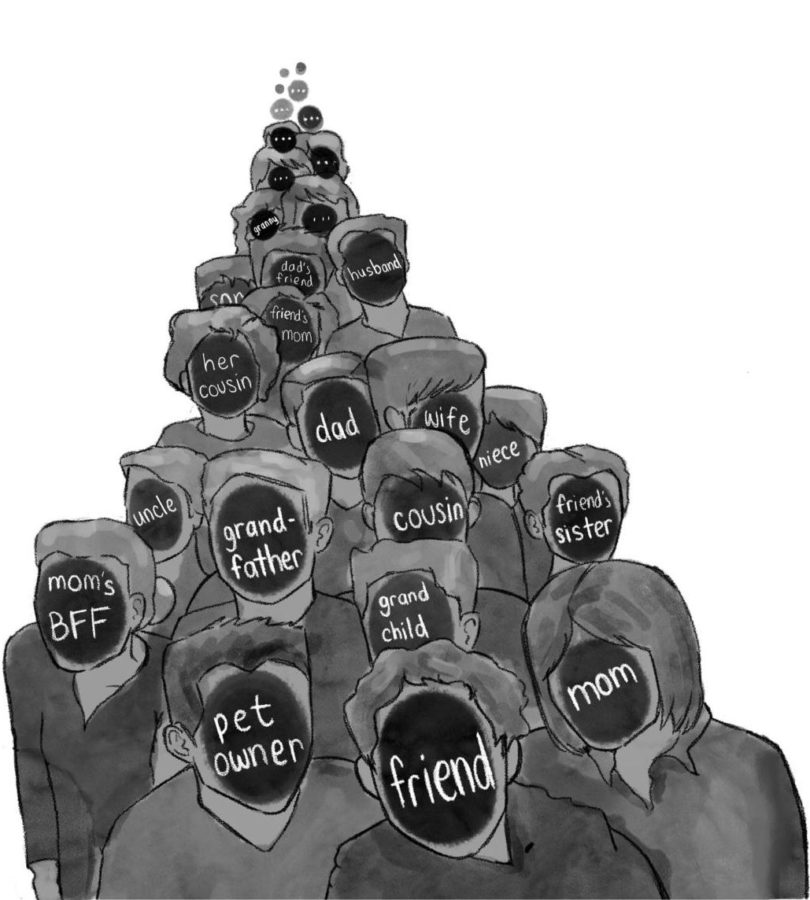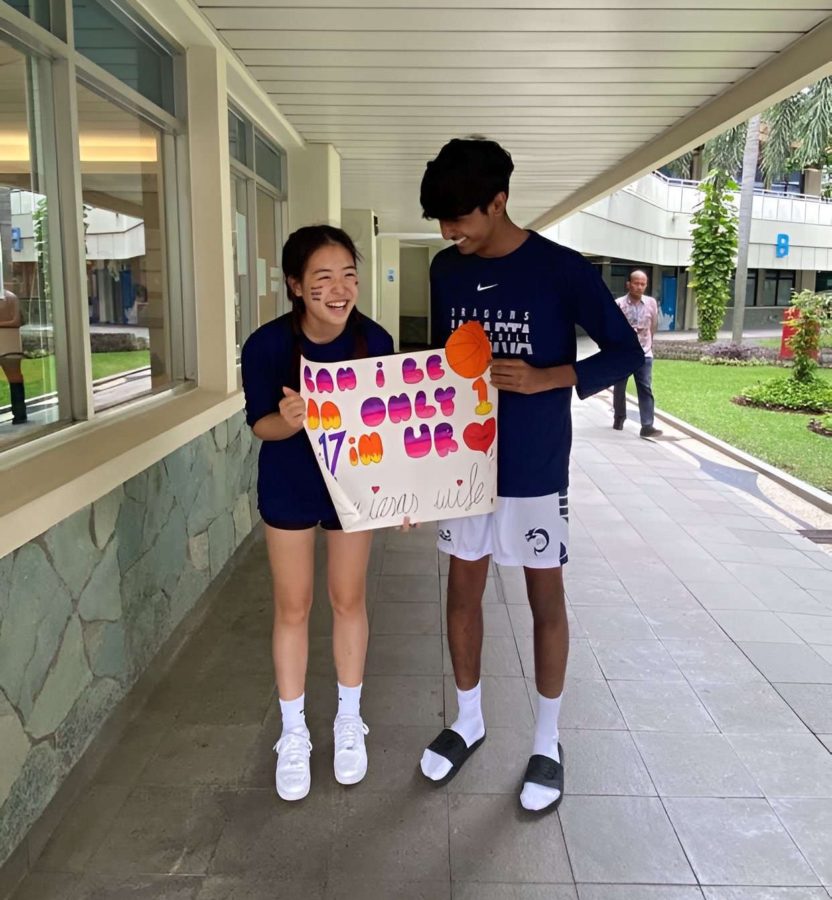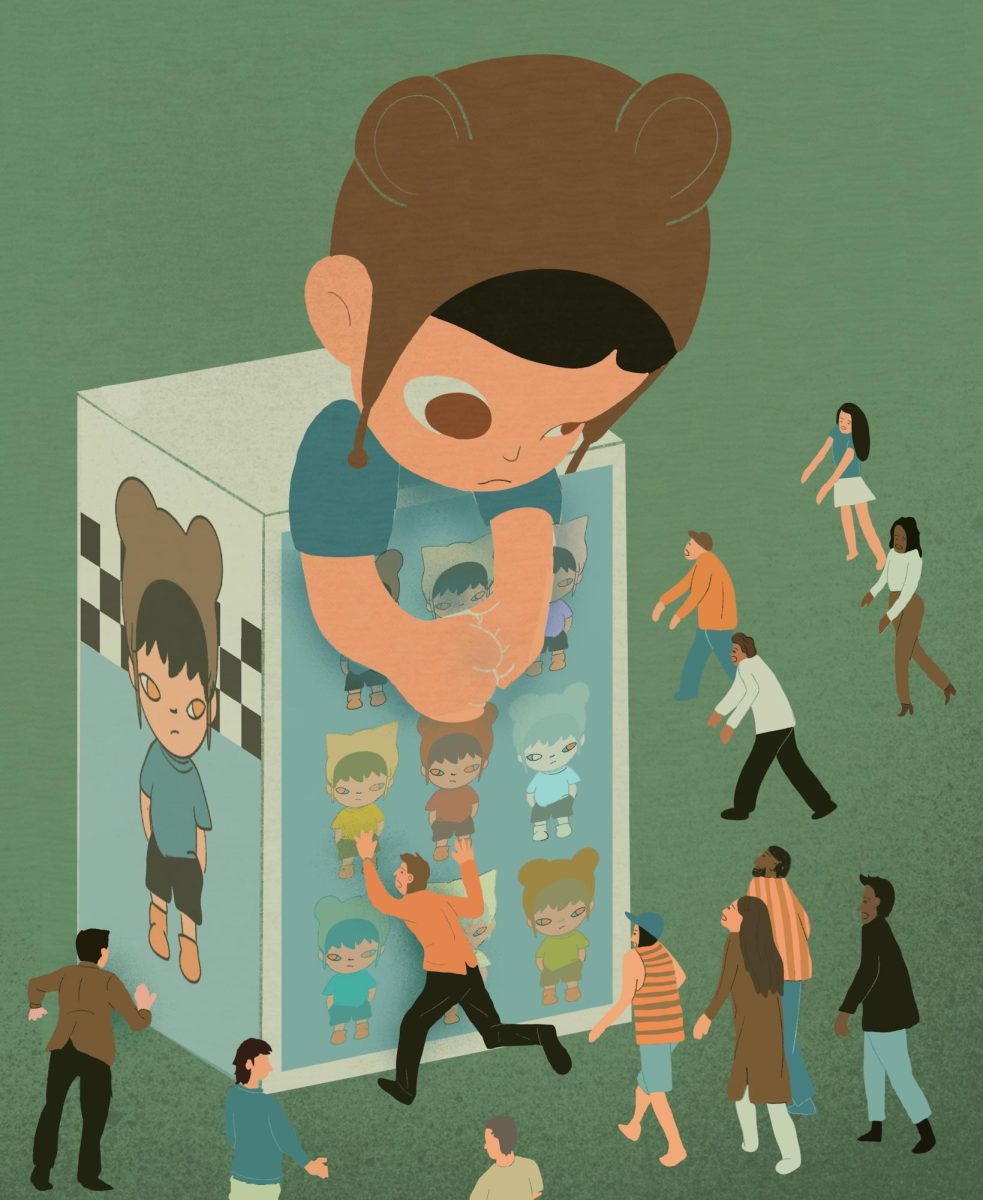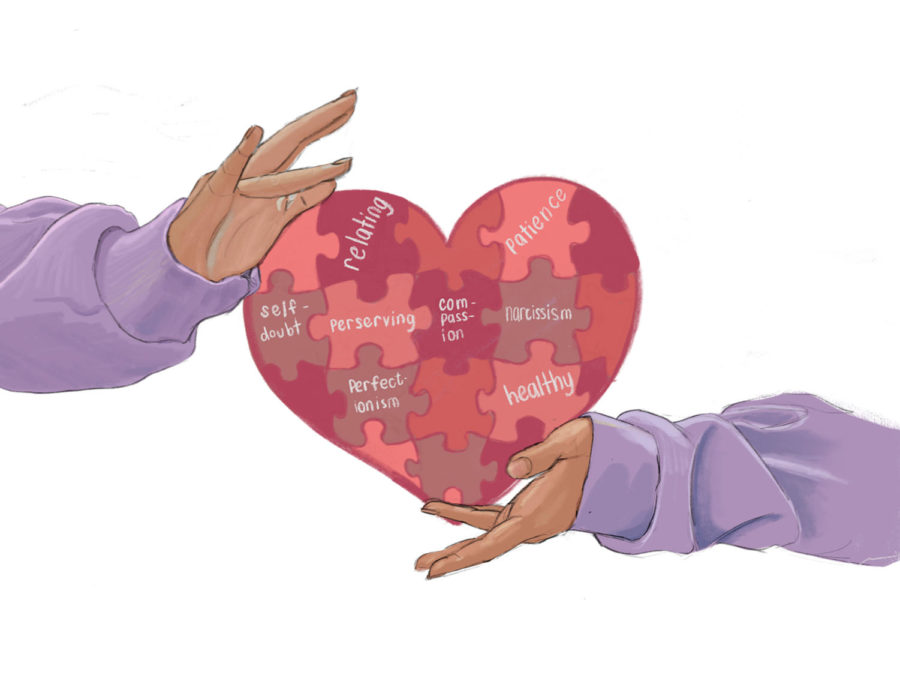How to Define “Self-love”
We can reflect and become more aware of the misconceptions of self-love.
According to Webster’s Dictionary, self-love can be defined as “an appreciation of one’s worth.” However, what leads to genuine self-appreciation? What defines our true worth? While the word “self-love” is commonly used today, its meaning is often left obscure. Nonetheless, as students who are constantly evaluating ourselves, defining the meaning of “self-love” has never been more essential.
Academic Pressures & Expectations
Many students have an automatic tendency to think that success in school is directly correlated to a boost in happiness and self-esteem. In fact, nearly 30% of survey respondents mentioned academic success as a major contributing factor to self-love. From “succeeding academically” to “receiving good grades on a test,” these students find that having tangible results which reflect their hard work is rewarding and ultimately self-satisfying. One student declares, “I love myself the most when I’m able to achieve my goals as planned; I feel even better if I go above and beyond my original expectations.”
However, with increasing workload and responsibilities, the pressure to succeed may feel overwhelming for many high school students. While occasional self-imposed academic pressure can act as a motivator for further self-development, it can easily become excessive within a bustling hectic atmosphere such as high school. One freshman admits, “keeping up with school work while simultaneously maintaining good grades can be very stressful.” A junior also explains that keeping a consistent work ethic is challenging when “it feels like everything is falling down on [her] in stressed situations.” In such circumstances, some students may develop a long-term fear of failure from being unable to reach certain targets and goals. In fact, many students revealed that they dislike themselves the most when they “receive a bad grade on a test” or are “unable to complete a set goal.”
Feeling gratification and pleasure from achievements attained through hard work and dedication is a natural, psychologically healthy response. Nonetheless, purely relying on visible and immediate rewards–such as GPA, scholarships, and leadership positions–to deem one’s self-worth results in conditional interpretations of self-love.
People who truly learn to love themselves learn and grow from their mistakes. They seek out opportunities for improvement and utilize failure as a valuable learning experience for future success. These types of people are willing to acknowledge that they are not perfect, but their optimistic mindset allows them to move forward. In other words, true academic self-love is derived through effort, not results. As put by one senior, “Self-love, hence, should not only be celebrating one’s talents and achievements but also the attempt to improve oneself as a human being.”
Status in Social Media
Our society is increasingly more tightly interconnected than we can imagine. One of the main reasons for this is due to digital media platforms such as Facebook, Instagram, Youtube, Titktok, and Whatsapp. With such communication platforms, staying connected with friends, family, teachers, and other users from around the globe is effortless. Aside from maintaining and building relationships, promoting worthwhile causes and raising awareness on social media can also be very effective.
Nonetheless, these benefits are also followed by limitations. Social media showcases lifestyles in intimate detail, which can create opportunities for comparisons. To add on, influencers and celebrities—supposed role models for younger generations—can easily build a false persona, allowing viewers to only see perfection and a flawless lifestyle. The more time students spend comparing and contrasting their own lives, the more they may start to find themselves as lacking. Accordingly, more than 20% of survey respondents found social media to erode their self-love. One junior asserts that she dislikes herself the most when “picking parts of [her] body and comparing [herself] to others.”
On the contrary, a few students argued that wearing “cute outfits and makeup” and “gaining a lot of followers and friends” increases self-love. Nonetheless, external qualities such as physical looks and possessions are only fleeting and short-lived. Those who rely on such short-term benefits are prone to feeling insecure when they don’t receive acknowledgment from others. It can also lead to narcissism or overconfidence, which generates narrow-minded judgments. As mentioned by one junior, “Social media can set unrealistic standards for the majority without considering an individual’s uniqueness.”
Cultures & Stereotypes
Eastern and Western cultures tend to have distinct values and traditions which can lead to different life patterns. While some values are helpful throughout people’s lives, others can lead to commonly known stereotypes that affect their view on self-love. To give an example, Western cultures tend to prioritize individuality and independence. For some students, being able to focus on oneself and sharpen individual strengths fosters self-reliance and uniqueness. Nonetheless, this same advantage can also give rise to arrogance or egotism, especially if ideas go unchecked and voices go unheard. AP and IB physics teacher, S. Nicholas Nannen, suggests that “At times, many Americans think they are the best at things and love themselves a little too much.”
Meanwhile, most Asian countries, uphold the idea of unity and social harmony with high regard; this can be beneficial as it leads to long-term social and economic stability of a nation. However, cultures that place importance on interdependence can also quickly evolve into group conformity. As a result, the thought of deviating from group behavior by standing out or attracting unwanted attention may be unpleasant for students who were taught to uphold such values. As a matter of fact, one student attests they dislike themselves when “being the odd one out within a group.”
Most Asian countries also emphasize education and certain beauty standards, which influences how one should often be perceived. “I think that because of my Chinese background, there are a lot of expectations that come with [acceptance],” one student explains. “Getting perfect A* grades, not gaining weight, having fair skin, being tall and slim…all of these expectations make it really hard for me to love myself because it becomes too much sometimes.” While there may be no specific step-by-step solution to these problems, being aware of these stereotypical cultural expectations help us reframe our mindset for better self-positivity.
Physical & Mental Wellbeing
Maintaining our optimal physical health during the busiest years of high school can be an obstacle. With increasing assignments, quizzes, tests, and projects, many students don’t get the appropriate amount of sleep that they desperately need. Nowadays, sitting in front of the computer and studying late until night without taking any breaks in between has become a common practice among students. However, the American Academy of Medicine insists that teenagers from ages 13-18 should get a minimum of 8 hours of sleep per 24 hours. With sleep deprivation, students can be more prone to fatigue, restlessness, lack of concentration, and in worse cases, depression. One student states, “I hate it when I don’t take care of myself properly, especially when I sleep really late and force myself to wake up tired the next day. ”
Exercise is also an important component of physical health. With physical health classes no longer a requirement for juniors and seniors, some students may not have consistent exercise habits. As one senior attests, “I barely get any exercise nowadays.” However, being physically active for at least 30 minutes per day–whether through sports, running, yoga, or pilates–can bring a lot of rewards. From strengthening your muscles and bones to reducing the risk of coronary heart disease, the benefits of exercise vary. Another junior asserts, “I love myself when I take care of my body, go on walks, and eat healthily. ”
Our mental health is just as essential as our physical health. Alongside gaining enough sleep and exercise, having personal hobbies and spending time with family and friends enhance our psychological well-being. A senior claims to feel happiest when he is “mostly stress-free and doing well with friends and school.” Taking some spare time off one’s schedule to make time for enjoyable activities–from reading a book to playing sports–can lead to further self-exploration and happiness. Meanwhile, having family, friends, teachers, and loved ones who respect and appreciate allows us to form meaningful emotional connections. According to one junior, “being surrounded by the right people” is supposed to make one feel “calm, content, and loved regardless of their admirable qualities or faults.” Thus, affection and trust from the right people can lead to a securer sense of self and compassion for others.
With her ever-growing fondness for the English language and visual art, Katie is an aestheticist who loves to savor all things beautiful in the world....
Despite her love for art, Rachel was always hesitant to share it. But ever since the first illustration she submitted for the magazine as a contributing...
































